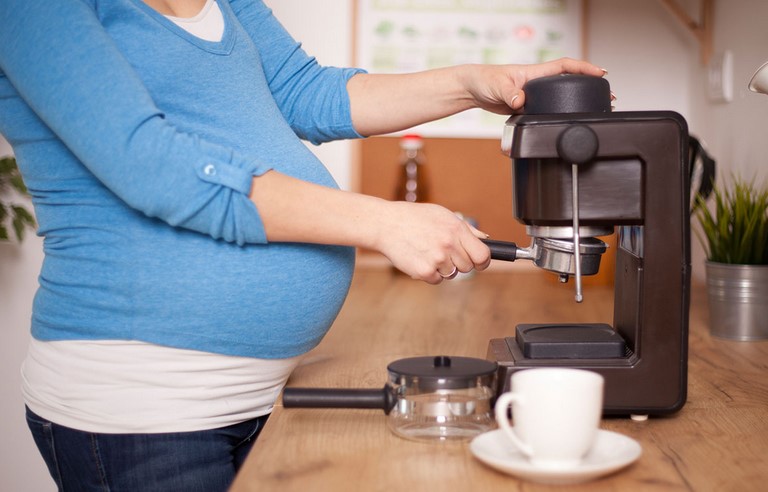You may be asking yourself, “Can pregnant women drink coffee?” Well, the answer is not always as straightforward as you might think. While low- caffeine varieties of coffee are safe, and Black tea is a good substitute, there are a few things you should know about caffeine during pregnancy. In addition, caffeine is not good for the placenta, so you should limit caffeine intake during your pregnancy.
But how much caffeine is 200 mg? It depends on the type of food. For example, one cup of coffee contains between 60 and 200 mg of caffeine, but it’s a lot less if you have decaffeinated coffee. Plus, there are other sources that also contain caffeine such as tea and some drinks. Before you get confused about your options, just read on for the facts about caffeine and pregnant women.

Limiting caffeine intake
The American College of Obstetricians recommends limiting caffeine intake for pregnant women to 200 milligrams a day, or approximately two cups. While this limit is arbitrary, it is based on animal studies that showed that caffeine can decrease fertility and lead to birth defects in the unborn child.
Black tea is a good option
Black tea is a popular beverage that is suitable for pregnant women. It contains polyphenols that protect the heart, antioxidants that may lower the risk of cancer, and nutrients that support the immune system. It is also believed to reduce morning sickness and help with labor and delivery. There are many types of tea that are safe for pregnant women to drink. However, there are also some that may be harmful to the unborn child.
Decaf coffee is not completely caffeine-free
Although decaf coffee is caffeine-free, it is still not completely safe for pregnant women. The amount of caffeine you consume during pregnancy should be moderate. The best way to avoid caffeine while pregnant is to opt for herbal teas or other non- caffeinated drinks.
Effects of caffeine on placenta
Caffeine is known to adversely affect the placenta of pregnant women. There is no enzyme to inactivate caffeine, so a high caffeine intake can be harmful to the fetus. Several studies have attempted to determine the rate at which caffeine crosses the placenta. One study found that after caffeine was introduced into the maternal channel at a concentration of 0.25 mg mL -1, a steady concentration was reached on the maternal side after 6.5 h. By the time the caffeine reached the fetal side, the concentration was 0.0033 mg mL-1.
Effects of caffeine on behavior
While there are many benefits of caffeine consumption for pregnant women, there are also some risks. One of the risks is the potential for caffeine to harm the fetus. Caffeine metabolites increase vasoconstriction of the placenta, which may negatively affect the foetus. However, there is no conclusive evidence linking caffeine consumption during pregnancy with behavioral problems in children. A recent study from the Research Institute at Nationwide Children’s Hospital found that prenatal caffeine consumption did not lead to behavioral problems or reduced IQ among offspring.

Effects of caffeine on absorption
While pregnant women may think that drinking a cup of coffee is not harmful, caffeine consumption may have adverse effects on the developing baby. This is because caffeine constricts blood vessels, decreasing the supply of nutrients to the fetus. It can also reduce the blood flow to the uterus and placenta. As a result, pregnant women who drink more than 200 mg of caffeine daily may face increased risk of miscarriage.
The bottom line is that moderate caffeine consumption (about 300 mg a day total) during pregnancy doesn’t appear to pose any increased risk to a fetus or increase the chance of pre-term birth. But clearly, it’s something you should discuss with your doctor if you’re pregnant and would like to know for sure whether caffeine consumption is safe for you.
